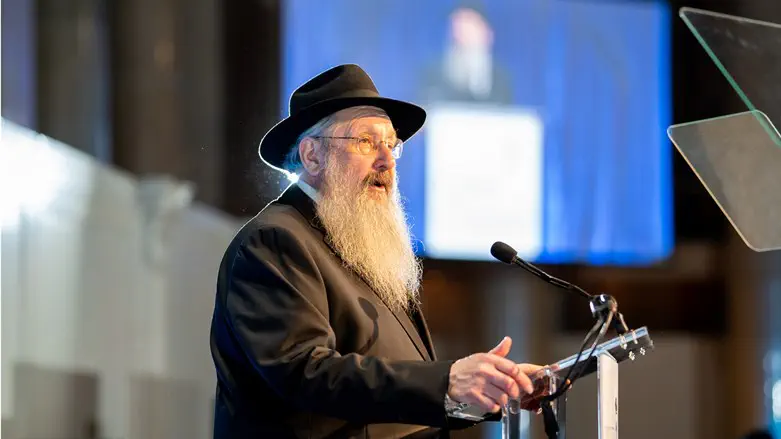
As we approach the end of the Hakhel year, it’s interesting to note that Hakhel, the biblical commandment to assemble all Jewish people – men, women, children and converts – to hear the reading of the Torah by the King of Israel once every seven years, is the next to the last mitzvah in the Torah – with only the commandment that every Jew write themselves a Torah scroll coming after it.
From his earliest years in Poland and throughout his entire life, the Lubavitcher Rebbe had a passionate love for the mitzvah of Hakhel- as well as that of writing a Torah scroll. He saw both of these commandments as avenues in which every Jew could feel attached to the mesorah, the chain of traditions that has been passed down through the generations- and a contemporary way for us to express unity with our community and the Jewish nation.
This passionate commitment to Jewish unity was indeed something which personified the Rebbe as a leader of modern Jewry, and he worked tirelessly to identify every possible opportunity to channel the mitzvoth of the Torah in a way that celebrated our common peoplehood and allegiance and love for one another.
But beyond that common denominator between these two mitzvoth, the sages teach that there is another factor which unites them and can explain why they were chosen as the final two mitzvoth of the entire lexicon of 613 commandments.
The rabbis explain that these commandments were in essence the “last will and testament” of Moshe Rabeinu. At that point, Moshe knew that his days of leadership were reaching their fateful end, and that he wouldn’t be blessed to serve as the leader who would take his people across the Jordan and into the Land of Israel. He therefore wanted that his eternal legacy would live on, specifically through the power represented by these two mitzvoth.
The mitzvah of Hakhel mandates that once every seven years the masses would gather and hear the King of Israel read the Torah. As explained in detail by Maimonides, this event was designed to ensure that the connection that our people had with the biblical narrative would remain alive even through the passage of time and the awe that our people had for the revelation at Sinai would remain relevant even centuries after it occurred.
Similarly, the act of one personally writing a Torah scroll is intended to convey the message that even as time passes on, Torah remains the center of our lives, belonging to each and every one of us and that we need to do our own due diligence to ensure that centrality will never wane.
These lessons are as relevant today as ever. While the Rebbe knew there would be a time that he would no longer be physically with us, he focused on this message because he saw it as a central value to who we are as Jews and as a united Jewish nation.
As we approach Rosh Hashana this year, it marks the completion of the Hakhel year. Undoubtably we live in times of challenge, but there remains so much to be proud of as a Jewish people. Certainly, unity is something that can elude us and the divisions that exist within our community is something which needs to be addressed and overcome.
But the power of Hakhel, and that of the Torah as was so magnificently transmitted to us through the teachings of the Rebbe, was that unity and Jewish pride can allow us to overcome even the greatest of challenges. He inspired, and continues to inspire, so many people all across the world. These lessons are as relevant today as ever. It’s amazing to see that this message of the Rebbe, even 28 years after the Rebbe’s passing, is still so vibrant, clear and continuous.
Communities have gotten together because of Hakhel, families that have come together to reconnect and spend time together because of Hakhel. I feel it is a blessing and so uplifting to be able to live it, and witness it happening all around us. Although the Rebbe is not with us physically, nevertheless his focus on this message remains as a central value to us, who we are as Jews, and as a united Jewish nation.
In the merit of his teachings and all he was able to accomplish throughout such a tremendous life of service both to community and Hashem, we should be blessed. As we get ready for a new year, I pray that in 6 more years we will experience the true Hakhel where once again all the Jewish people will be united, in body and in spirit, in Jerusalem.
Rabbi Sholom Duchman is the Director of Colel Chabad, Israel’s longest running social services organization founded by the Alter Rebbe of Lubavich in 1788.